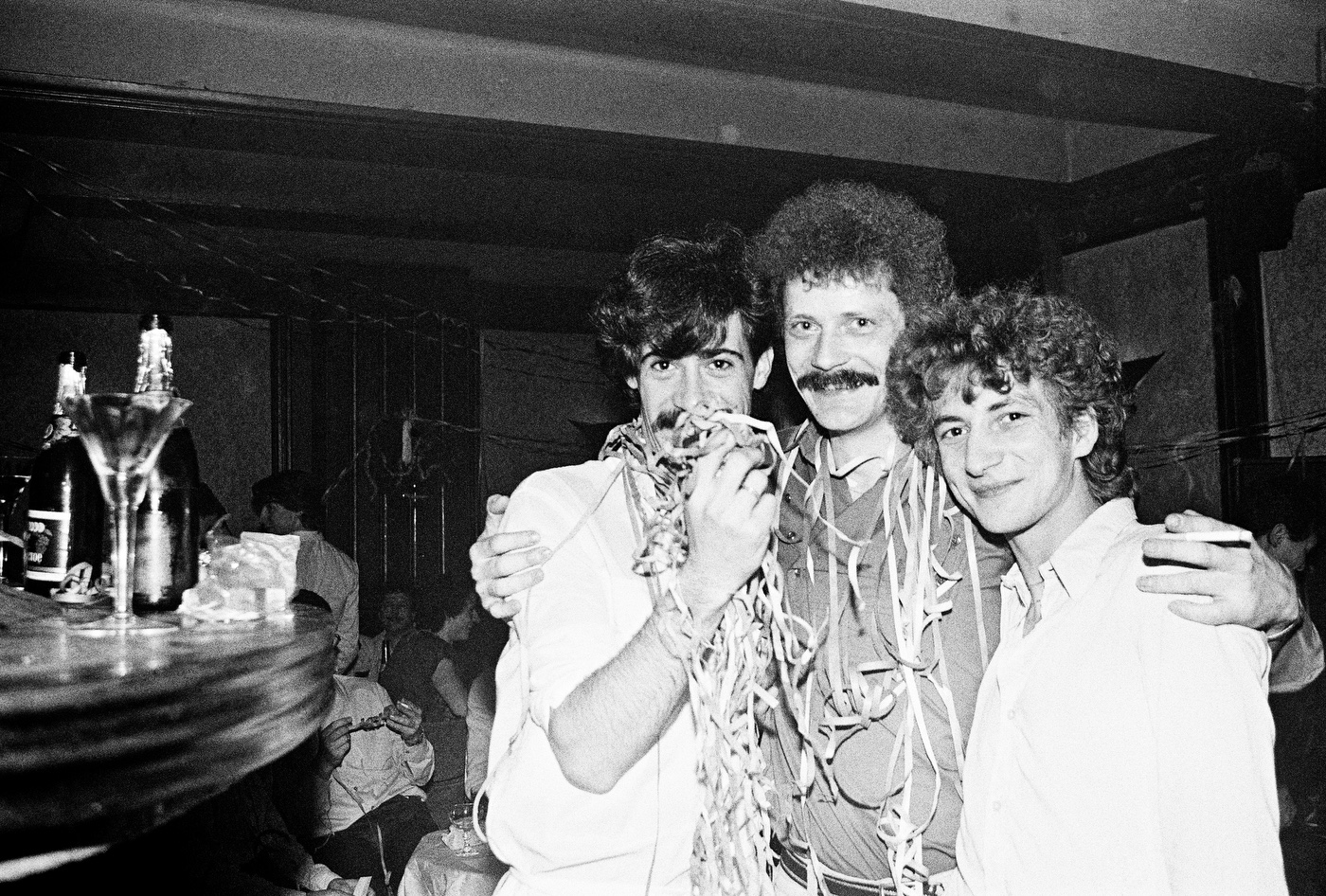Documenting LGBTQ hedonism in ’80s Czechoslovakia
- Text by Geralda Cela
- Photography by Libuše Jarcovjáková

Libuše Jarcovjáková has never taken nice pictures. Her photography is deeply personal, raw and uncompromising – and, as a result, one of the most eye-opening insights into life behind the iron curtain. It is a portrait of sex, desire and hedonism in ’80s communist Czechoslovakia.
“People tend to have a completely distorted image of what everyday life was like in a totalitarian society,” she explains. “People were extremely surprised by the lack of restraint in these photos, by how wildly we lived.”
“People don’t change that much. We’re still the same human species with the same worries and the same pleasures. Perhaps this is the universal message of my work: that people are always the same.”
Much of the 67-year-olds photography has remained hidden away until this year, when it was finally celebrated in a reflective exhibition at the Rencontres d’Arles festival 2019. The show, titled Evokativ, was the first time her extensive archive was shared with the rest of the world.
Some of Libušes most captivating work was taken during her nights in the T-club (one of the two underground gay clubs in Prague) in the ’80s. The photographer says that she visited almost every night from 1983 to 1985. “A friend took me there,” she recalls. “The moment I arrived I fell in love with the whole environment. I just knew that I had to take photos of the place and that one day I would.”


“Everything was so incredibly vivid, colourful, in contrast to the drab greyness outside.”
Although being openly LBGTQ+ was decriminalised in 1962, homophobia was still widespread in Czechoslovakia. Many gay people would still be faced with “gross indecency” charges, a term used liberally and loosely by state police. Despite that, people continued to risk their freedom while attending T-club – which was only a few minutes walk away from the Security Services headquarters.
“People were at risk of being blackmailed by the secret police because of their sexual proclivities,” says Libuše. “The entrance was guarded by a bouncer who was master of the fate of everyone trying to get into the club. He made absolutely sure that nobody entered who simply wanted to gawp at the gays or who might be aggressive. Anyone causing a disturbance could expect to be banned for a considerable period of time. It took a short while before I was able to visit the club on my own without a chaperone, but things soon settled down.”
Although Libuše describes growing up in communist Czechoslovakia as a “schizophrenic” time; she and the people whom she met, partied with and loved still lived in hope. “We knew without a shadow of a doubt that we were living in a perverse society in which the basic moral principles did not apply, and upon which the will of a foreign power was being imposed. In spite of all of this, we had hope. Quite illogically we hoped that everything would one day change.”










See more of Libuše Jarcovjáková’s work on her official website.
Enjoyed this article? Like Huck on Facebook or follow us on Twitter.
You might like

Largest-Ever Display of UK AIDS Memorial Quilt Opens at Tate Modern
Grief Made Visible — Comprising hundreds of panels made by lovers, friends and chosen family, the UK AIDS Memorial Quilt returns in full for the first time since 1994 – a testament to grief, friendship and the ongoing fight against HIV stigma.
Written by: Ella Glossop

In Medellín’s alleys and side streets, football’s founding spirit shines
Street Spirit — Granted two weeks of unfettered access, photographer Tom Ringsby captures the warmth and DIY essence of the Colombian city’s grassroots street football scene.
Written by: Isaac Muk

On Alexander Skarsgård’s trousers, The Rehearsal, and the importance of weirdos
Freaks and Finances — In the May edition of our monthly culture newsletter, columnist Emma Garland reflects on the Swedish actor’s Cannes look, Nathan Fielder’s wild ambition, and Jafaican.
Written by: Emma Garland

Tony Njoku: ‘I wanted to see Black artists living my dream’
What Made Me — In this series, we ask artists and rebels about the forces and experiences that shaped who they are. Today, it’s avant-garde electronic and classical music hybridist Tony Njoku.
Written by: Tony Njoku

Dalia Al-Dujaili: “When you’re placeless, nature can fill the void”
Babylon, Albion — As her new book publishes, the British-Iraqi author speaks about connecting with the land as a second-generation migrant, plants as symbols of resistance, and being proud of her parents.
Written by: Zahra Onsori

We are all Mia Khalifa
How humour, therapy and community help Huck's latest cover star control her narrative.
Written by: Alya Mooro

